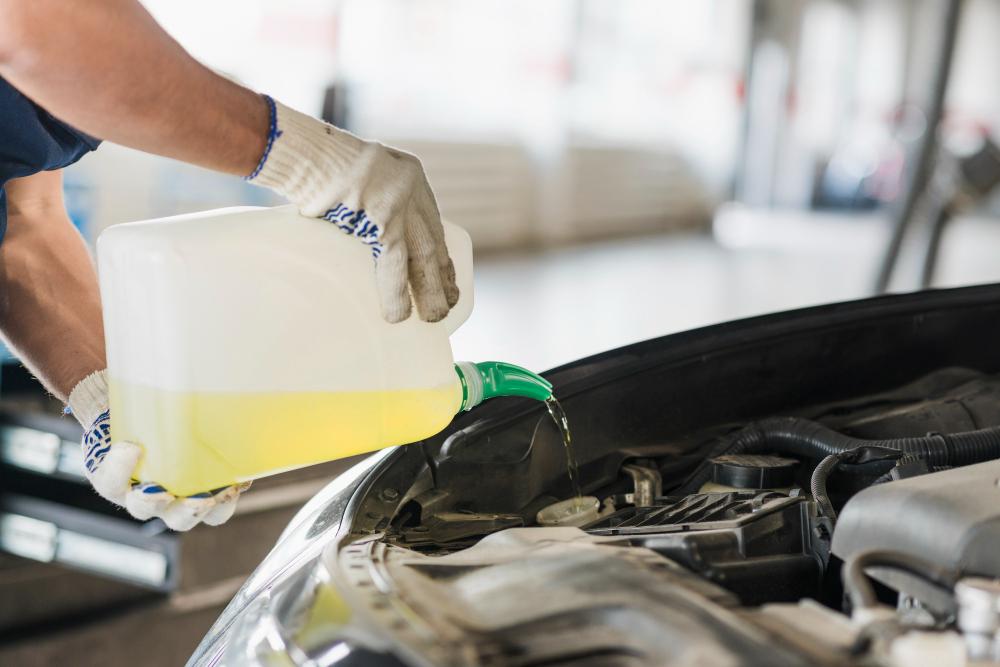Menu

An oil change is arguably the most essential car maintenance task, but many people are unfamiliar with what an oil change entails. As it turns out, understanding the importance, frequency, and process for oil changes can significantly extend the life and performance of your vehicle.
In this brief article brought to you by Wrights Car Care, we provide a short guide on oil change services. If you are looking for a reputable auto repair shop to take your vehicle to, then call Wrights Car Care to schedule a flexible appointment today. We offer auto maintenance and auto repair service.
Oil plays a pivotal role in lubricating the engine's moving parts, reducing friction, and preventing wear and tear. Over time, however, oil breaks down, loses its lubricating properties, and becomes contaminated with dirt, debris, and combustion byproducts. Failing to replace old, degraded oil can lead to increased engine wear, reduced fuel efficiency, and potentially costly repairs.
In short, regular oil changes ensure that your engine stays clean and properly lubricated, thereby enhancing its longevity and performance. Neglecting oil changes can lead to costly repairs and potentially shorten your vehicle's lifespan.
The necessary frequency of oil changes varies depending on several factors like the type of oil used, your driving habits, and the vehicle's age and mileage. As a general rule of thumb, however, most manufacturers recommend changing the oil every 5,000 to 7,500 miles if using conventional oil and every 7,500 to 10,000 miles for synthetic oil. However, it's crucial to consult your vehicle's owner's manual for the manufacturer's specific recommendations tailored to your car's needs.
An oil change involves several steps to ensure the engine receives fresh, clean oil for optimal performance.
First, the mechanic will drain the old oil from the engine, allowing it to flow out completely. With the old oil removed, the mechanic will address the oil filter. The oil filter, which traps contaminants, is replaced to prevent them from circulating back into the engine.
Next up is the new oil. Clean, high-quality oil compatible with your vehicle's specifications is added to the engine. It’s important to choose the right type of oil.
As part of a comprehensive service, other vital fluids such as coolant and brake fluid may be checked and topped off if necessary. Finally, the mechanic will conduct a visual inspection of the vehicle to identify any leaks, potential issues, or maintenance needs.
To maximize the benefits of regular oil changes, make sure to adhere to the oil change intervals recommended by your vehicle's manufacturer. Use high-quality oil and filters that meet or exceed your vehicle's requirements to ensure proper lubrication and filtration.
Check your vehicle's oil level regularly and top it off as needed to maintain proper lubrication. While DIY oil changes are possible, professional service ensures thoroughness and may uncover underlying issues early.
Call Wrights Car Care to hire a uniformed and trained mechanic. We are here to take your call and schedule a convenient appointment for as soon as possible.
Wright's Car Care offers the most reliable import and domestic auto repair services. Read our blog posts to learn more about your vehicle.
Winter is around the corner, which means your car should be ready for the cold months ahead. From freezing temperatures to icy roads, winter can take a toll on vehicles,…
READ MORENothing is more frustrating than a smelly car, especially if you can’t pinpoint the cause. If you didn’t leave an old fast-food bag behind, then chances are that it is emanating from the engine. Strange car smells may not raise concerns initially, but they can escalate into bigger, more expensive problems if left unattended. That’s where Wright’s Car Care comes in as your trusted partner…
READ MOREYour vehicle is more than just a means of transportation; it is an investment. With this in mind, taking a…
READ MOREEvery car owner knows that maintenance and repairs add up, but where you take your vehicle matters most. The cheapest…
READ MORE